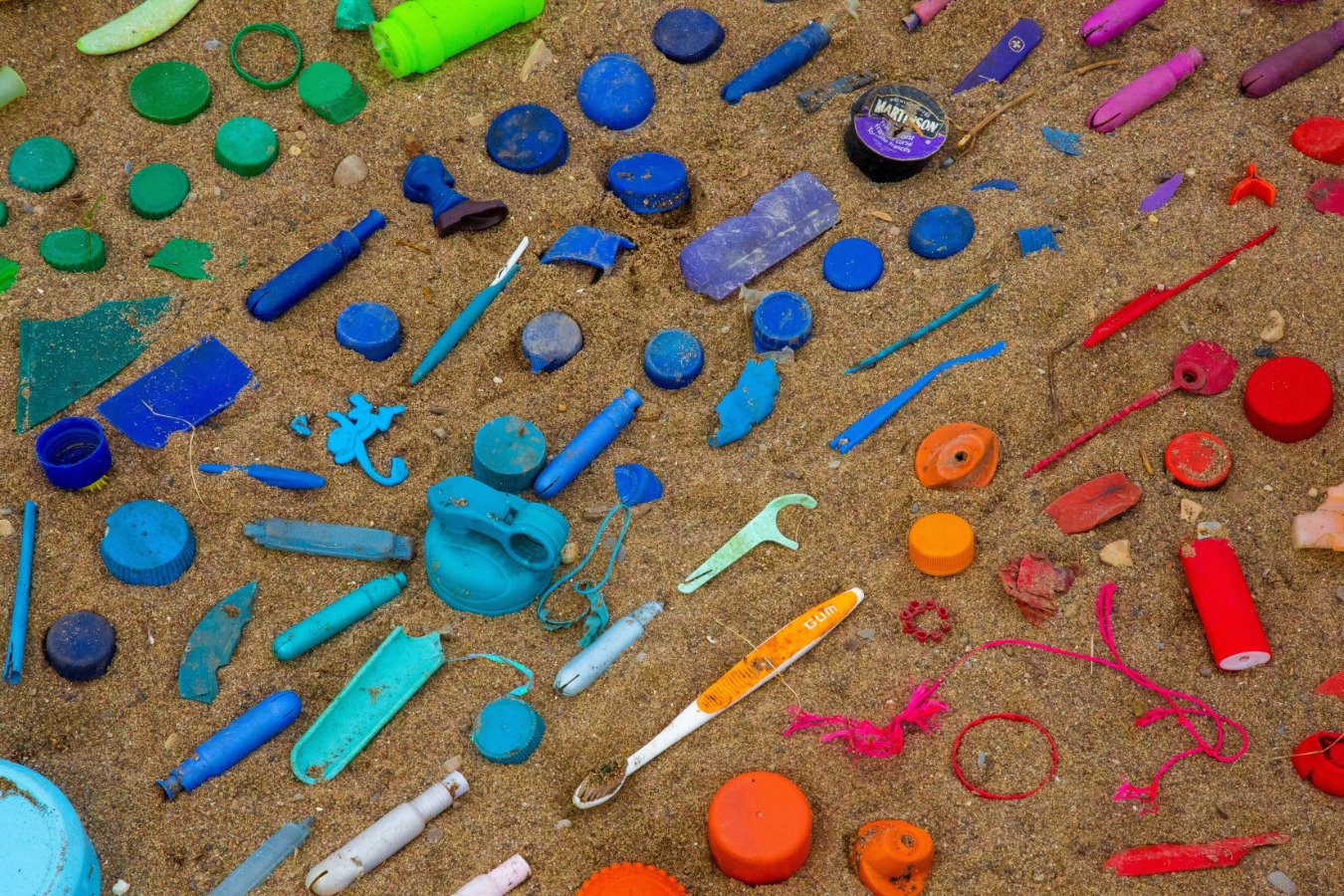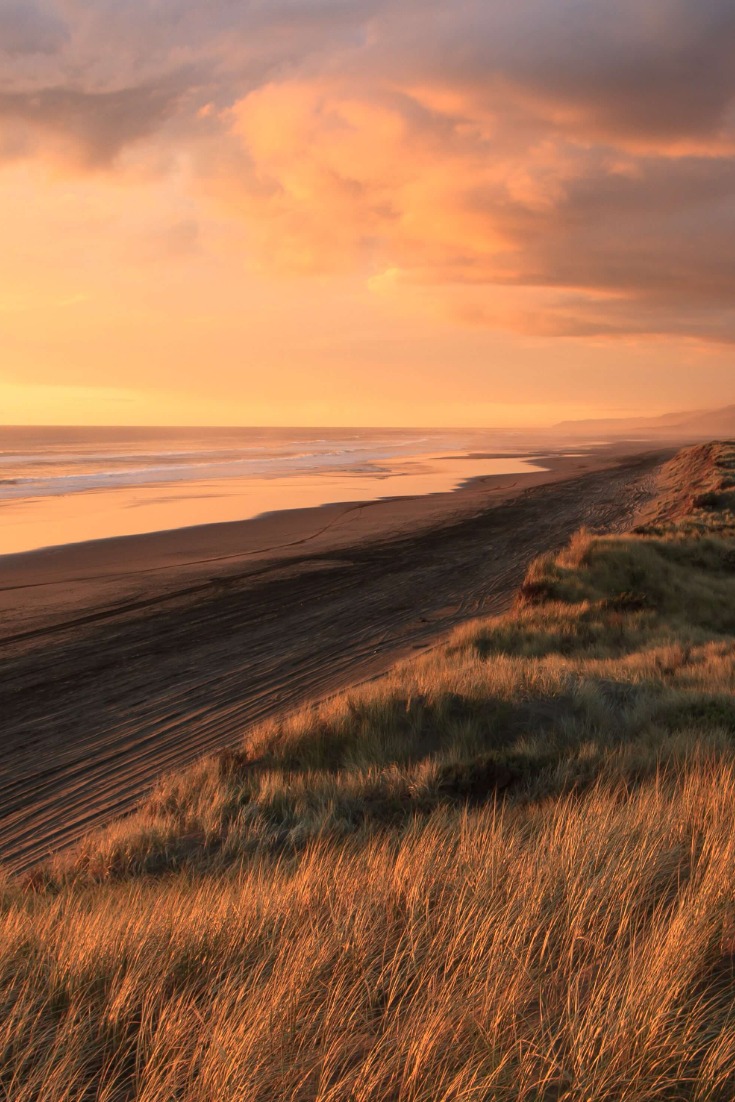The 2021 Ocean Conservancy and International Costal Cleanup report is in and many of the Top 10 from previous years still remain. It’s a good reminder that simple changes we can make, add up to have a huge impact. With the latest top 10 in mind here are easy swaps to keep beaches and oceans clean.
Top 10 items found in International Coastal Cleanups
- Cigarette Butts
- Plastic Beverage Bottles
- Food Wrappers (candy, chips, etc.)
- Other Trash (indiscernible plastic pieces, ppe, other trash that doesn’t fit in any categories)
- Plastic Caps and lids
- Plastic Grocery Bags
- Straws, Stirrers
- Plastic Take Out/Away Containers
- Beverage Cans
- Glass Beverage Bottles
Easy swaps to keep beaches and oceans clean
Roll Your Own
Why switch?
You may think these are small and don’t have much of an impact, but they certainly add up. 5.5 trillion (5,500,000,000,000!!!) cigarettes are consumed globally every year. So many end up on our beaches and in our oceans. The world is not an ashtray.
How to switch and better options:
- Quit smoking. I most certainly believe in free choice and totally understand how difficult it is to quit. For many this is only a pipe dream, no pun intended but a pipe would be a cleaner swap
- Rolling your own with biodegradable papers
- Smoking only cigarettes with plant based biodegradable filters
- Some E-cigarettes can be used responsibly
Reusable Water or Drink Bottle
Why switch?
A million plastic bottles are bought every minute! This could increase by 20% by the end of 2021.
Most of them are water bottles. People often think it’s better quality but more often than not, it’s only tap water.
20,000 bottles are bought around the world every second!
How to switch and better options:
- Reusable bottles, mugs and containers
- Water filters and filter straws
- Water fountains
- Buy a drink from an establishment, ask for it to be in glass or ceramic and stick around to enjoy it
- locally sourced drinks in recyclable glass or aluminium
Ditch the food wrappers
Why Switch?
These days, almost everything you buy is wrapped in plastic. So many food items come wrapped or bagged in some sort of plastic. Depending on where you live, a large percentage of plastic goes un-recycled. Even if you put it in the blue bin. Not only is this one of the worst polluters but it’s also known fact that unwanted chemicals can leach into your food.
How to switch and better options:
- Chose food that isn’t wrapped in plastic (examples: unpackaged veggies, fruit; bread in paper)
- Buy in bulk with reusable bags, containers or glass jars
- Make your own snacks
- Buy direct from farms or farmer’s market using your reusable bags or containers
- Choose better and safer packaging that are 100% recyclable: glass packaging, aluminum packaging
- Canning or freezing fresh items
Reusable Masks
Why switch?
An insane amount of disposable mask are tossed out everyday and end up on our beaches and in our oceans.
How to switch and better options:
- Store bought cloth masks
- Make your own cloth mask
- reuse disposables after sun bleaching masks
Reusable travel coffee Mugs
Why switch?
It’s estimated that 600 billion disposable cups are used and discarded every year. 50 billion in the USA and 2.5 billion in the UK.
How to switch and better options:
- Reusable mugs
- Reusable bottles like above
- Have your coffee at the cafe in a ceramic mug. Take a bit of time to enjoy the moment
- Ask for no lid. Depending on where you’re going with your drink, think about whether you need a lid
- Support businesses who use compostable lids
Reusable Grocery Totes
Why switch?
12 minutes of use, 1000 years of pollution. Most bags are simply thrown out, less than 1 percent are recycled.
These bags affect our marine life and birds, making them sick or dying of starvation as they mistake it for food. Consequently, it ends up in our food chain as well
How to switch and better options:
- Reusable bags
- Use your cart or basket to get your groceries to your vehicle if you have forgotten your bags
- If you see someone you know at the store, ask to borrow a bag from them
- Pockets and even hoods on you sweatshirt or jacket. This is only for after your items have been scanned at the till
- Most supermarkets have old boxes that can be reused
- Paper bags if you have not other choice
Reusable Straws
Why switch?
Straws and stirrers have an enormous impact when you add them all up. In the US alone 500,000,000 straws are used every day. This could fill 125 buses every day!
Most of them end up in landfills, waterways and oceans. They cause havoc on marine life searching for food.
How to switch and better options:
- Reusable straws: Stainless Steel, Bamboo or Glass
- Biodegradable straws: Paper, Sugar, Rice or wheat
- Skip on the straw
- Reusable stirrers: Knife, Spoon or Fork
- Biodegradable stirrers: Bamboo or wood
Reusable Take Out Containers
Why switch?
2025 million takeaway containers per year being used in the European Union (EU) alone.
Just like plastic cups and plates. Some are recyclable but more often than not they end up in the trash. Especially if they have food residue on them.
Recycling centres frequently throw out contaminated plastics and often the clean ones from the same bin get tossed as well.
How to switch and better options:
- Bring your own reusable containers. You may have to order dine in and transfer to containers yourself
- Dine in, take a bit of time to enjoy the moment
- Biodegradable container options: Paper, Plant based compostable. Don’t mix these with recyclables
- Support businesses that use biodegradable options and let those who don’t know that you’ll support them once they make the switch from plastic
Recycle Aluminium and Glass Beverage Containers
Why recycle?
Aluminium cans and Glass bottles have some of the best recycling rates.
How to switch and better options:
- Reusable bottles, mugs and containers
- Refillable growlers
- Water filters and filter straws
- Water fountains
- Buy a drink from an establishment, ask for it to be in glass or ceramic and stick around to enjoy it
Beyond this years top 10

More easy swaps to keep beaches and oceans clean
Reusable Cups and Plates
Why switch?
Throwing away is a myth, trash doesn’t actually go away. Disposable cups and plates more often than not end up in landfills, waterways and oceans.
How to switch and better options:
- Bring your own reusable Cups and Plates
- Durable camping cups or plates
- Biodegradable if you absolutely need a disposable. Covid business protocols come to mind
Reusable Utensils
Why switch?
An unbelievable amount of these are used every day and you guessed it, they end up in landfills, waterways and oceans. Some estimates put the number of individual plastic utensils wasted at 40 billion per year in the United States alone.
How to switch and better options:
- Reusable Stainless Steel or Bamboo utensils
- Durable camping utensils
Bamboo Toothbrush
Why switch?
Billions of plastic toothbrushes are produced every year and all of them manufactured since the 1930’s still exist.
How to switch and better options:
- Reusable Bamboo toothbrush
- Plant based bristles
Period Panties or Menstrual Cups
Why switch?
Plastic tampon applicators litter our world and pads have the equivalent plastic of 4 bags.
How to switch and better options:
- Reusable period panties that absorb like multiple pads
- Reusable menstrual cup
Final thoughts
Together we can have a major impact. You can make a real difference with the easy swaps to keep our beaches and oceans clean.
If you are having a hard time removing these items from your life, focus on eliminating one thing to start and work your way up. Reducing has an impact as well. Before you now it, these changes will be easier than you think.
Enjoy chilling on a clean beach.
Please share on your socials or even better subscribe below for regular updates. Thanks for reading,
Pat
Pat is a Ski Patroller/Avalanche Technician with a keen interest in design and sustainable living due to a longtime passion for the outdoors. Seeing glaciers melt, seasons change, summer skies full of smoke and beach pollution first hand, motivate him to make a difference.
As Yvon Chouinard Founder of Patagonia says “If you are not part of the solution, you are still part of the problem”.

